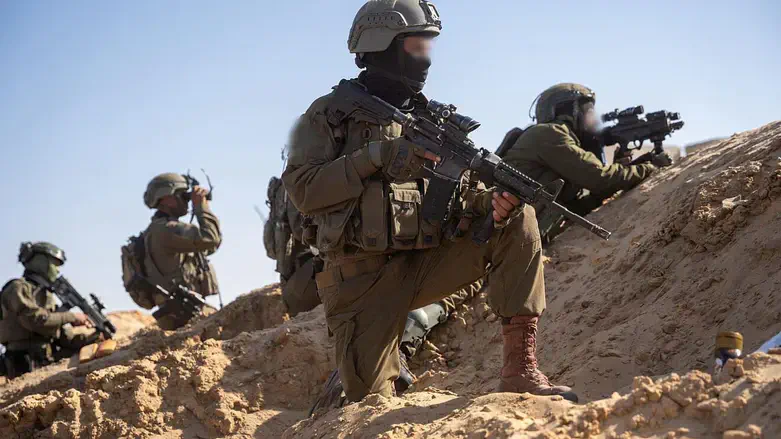
As Israel intensifies its military campaign in Gaza under the banner of Operation Gideon's Chariots, the international community watches with both concern and confusion. While critics label the operation as disproportionate or aggressive, as usual, a closer analysis reveals a strategic, calculated effort to permanently dismantle a terrorist entity that has held Gaza hostage for over a decade.
Israel is not pursuing conquest—it is seeking decisive victory over Hamas. That goal, and that goal alone, offers the only credible foundation for any future peace.
Operation Gideon’s Chariots marks a new era in Israel’s counterterrorism doctrine: clear, unambiguous confrontation with an enemy that thrives on asymmetrical warfare and hides among civilians. The Israeli Defense Forces (IDF) have made considerable progress—neutralizing hundreds of militants, destroying extensive tunnel systems, and capturing strategic terrain such as the Morag corridor, effectively bisecting Gaza to prevent Hamas movement and resupply.
These gains are not symbolic. They are tactical milestones that degrade Hamas’s operational core and move the region closer to security.
Israel’s actions are not rash or unmeasured. They are deliberate. After years of rocket attacks, kidnappings, border infiltrations, and psychological warfare, Israel has drawn a red line: Hamas cannot remain in power. No ceasefire, no partial demilitarization, and certainly no internationally brokered deals with a terrorist entity will change that.
Negotiations in Qatar—widely seen as a diplomatic lifeline for Hamas—only serve to prolong the conflict. Qatar, which has long harbored and funded Islamist groups, should not be entrusted with shaping the future of Gaza. Talks with Hamas grant it undeserved legitimacy and undermine Israel's hard-won battlefield progress.
This moment demands clarity. Hamas is not a political stakeholder; it is a jihadist militia committed to Israel’s destruction. Engaging it diplomatically—whether for hostages or ceasefires—only emboldens it. Every pause in military pressure allows Hamas to regroup, rearm, and prepare for the next war. Israel has tried temporary truces before. The result has always been the same: more tunnels, more rockets, more funerals. A lasting peace cannot be built on illusions. It must be built on the complete removal of Hamas from every lever of power in Gaza.
Critics point to the humanitarian toll of the operation, and their concerns, while emotionally resonant, miss the context. Hamas intentionally embeds itself among civilians, turns schools and hospitals into launchpads, and uses its own population as shields. The IDF, by contrast, goes to extraordinary lengths to mitigate civilian harm—issuing advance warnings, establishing evacuation routes, and coordinating aid deliveries under fire. No other military on earth operates with such restraint in such a complex environment.
The name Gideon’s Chariots has been sensationalized in media outlets, portrayed as a symbol of biblical vengeance. This narrative is false. The operation reflects resolve, not wrath. It is a calculated campaign to break the military spine of a group that has subverted every opportunity for peace. Hamas has sabotaged Palestinian Arab unity, hijacked international aid, and suppressed dissent within Gaza. Far from being defenders of Palestinian Arab rights, they are the primary obstacle to Palestinian Arab prosperity.
The endgame is clear: a post-Hamas Gaza governed by legitimate, accountable, and demilitarized institutions. Only when the terrorist infrastructure is gone can rebuilding truly begin. Israel is not interested in occupying Gaza indefinitely. But a responsible exit requires ensuring that Gaza does not become a launchpad for future wars. That outcome is impossible if Hamas is allowed to survive politically or militarily. Any future governance model must be free from terror and supported by regional actors committed to stability—not those who fund extremism behind the scenes.
The road to peace is not through Doha, but through decisive victory. Israel’s concluding moves in Gaza are not acts of vengeance; they are acts of necessary self-defense. They are designed to end the cycle of violence, not perpetuate it.
The world must stop pretending that Hamas is a legitimate actor and instead support Israel in its mission to eliminate a threat that endangers both Israeli and Palestinian lives.
Amine Ayoub, a fellow at the Middle East Forum, is a policy analyst and writer based in Morocco. Follow him on X: @amineayoubx
